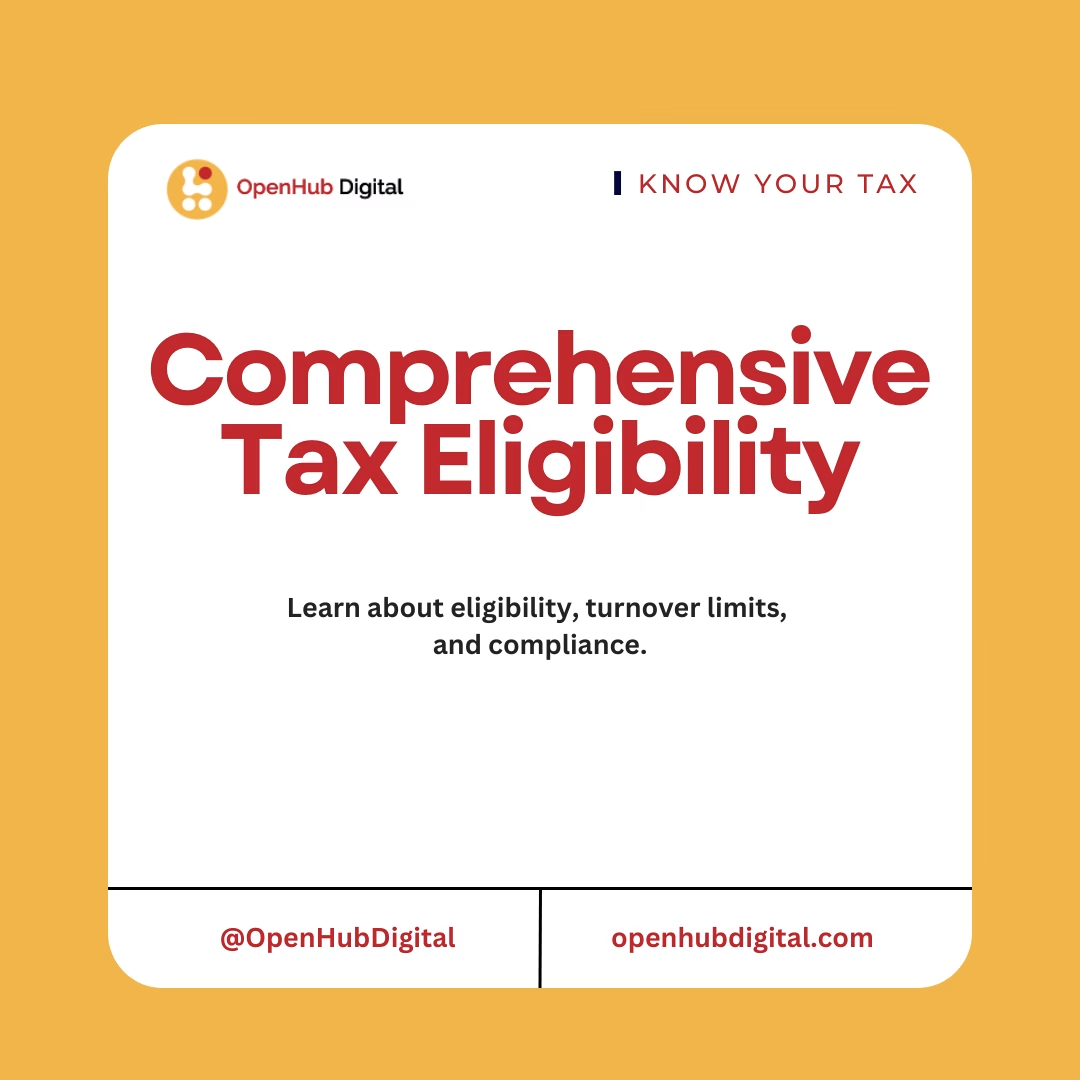The comprehensive tax regime in Cameroon was introduced to simplify taxation for small and medium-sized businesses.
While it provides an enhanced tax payment structure, not all businesses qualify.
For compliance and financial planning, it is important for taxpayers to know whether their business is liable for the comprehensive tax.
If this article helped you, you can support our work at OpenHub.
Support OpenHub DigitalWho Qualifies for the Comprehensive Tax?
A business must meet the following conditions to fall under the comprehensive tax system:
- Annual Turnover Below 50 Million FCFA
- Businesses with total annual revenue below 50 million FCFA are eligible.
- If turnover exceeds this limit, the business transitions to the actual earnings tax system, requiring monthly declarations and VAT payments.
- Type of Business Activities Covered
- The regime applies to businesses engaged in:
- Commercial activities
- Industrial production
- Handicrafts
- Agro-pastoral businesses
- It does not apply to businesses with specific tax exemptions or those subject to special tax regimes.
- The regime applies to businesses engaged in:
- Businesses Not Subject to Actual Earnings Taxation
- Companies that do not declare their profits based on actual earnings but rather on a pre-determined turnover range fall under this system.
- If a business reaches 50 million FCFA in revenue, it must start keeping detailed accounting records and declare its actual profits.
Businesses Not Eligible for Comprehensive Tax
Some businesses are automatically excluded from the comprehensive tax regime. This includes:
- Large businesses exceeding 50 million FCFA turnover.
- Companies under special tax regimes, such as oil and mining sectors.
- Professionals subject to personal income tax (IRPP) under different regimes, such as certain consulting services and regulated professions.
How Comprehensive Tax Liabilities Are Calculated
Unlike the actual earnings tax system, where taxes are based on net profit, comprehensive tax rates are applied based on turnover brackets.
Businesses must declare their previous year’s revenue to determine the applicable tax rate for the current year.
For more details on tax rates, refer to Comprehensive Tax Rates Explained.
Also, check out Introduction to the Comprehensive Tax Regime in Cameroon and Understanding the Transition from Lump-Sum Tax to Comprehensive Tax for more insights.
Consequences of Non-Compliance
Failing to register and declare under the appropriate tax regime can lead to:
- Fines and penalties for late declarations.
- Business closure if tax obligations are ignored.
- Transition to a stricter tax regime, requiring monthly VAT and corporate tax filings.
For tax assistance, visit OpenHub Consulting’s Tax Management Services.
If your business earns below 50 million FCFA annually and operates in the commercial, industrial, handicraft, or agro-pastoral sectors, you are likely eligible for the comprehensive tax regime.
This system offers simplicity and predictability in tax obligations, allowing businesses to focus on growth while maintaining compliance.
From Insight to Implementation
Going through the administrative and legal landscape in Cameroon requires more than just information—it requires a grounded local partner. At OpenHub Consulting, we specialize in helping the diaspora and international investors turn their business visions into compliant, operational realities.
If you are ready to move forward, our team is prepared to manage your registration and compliance from start to finish.
Start Your Company Incorporation →Discover more from OpenHub Digital
Subscribe to get the latest posts sent to your email.
If this article helped you, you can support our work at OpenHub.
Support OpenHub Digital
